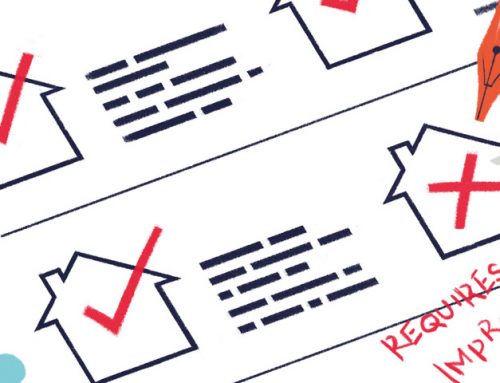Project Description

Work Stress: The Silent Killer & How to Combat it
Work stress has become a normal part of day to day life for the majority of Britain’s adult working population – fuelled by our culture of overworking ourselves to keep up with demands.
Most adults are seriously negatively impacted by stress at least once in their lives.
Some of the common reasons for stress in the UK are financial security and work, which most working adults could probably agree on. Suffering stress in silence at work instead of taking an open and proactive approach to it has become the new normal.
When workers feel under pressure to perform, it can lead to over-promising and attempting to reach goals that were unrealistic to begin with.
As the effect of work stress takes its toll on business’ overall productivity, some workplaces have started taking their employees mental well-being in consideration. Employers already have the legal duty of completing stress risk assessments and putting procedures in place.
It’s safe to say that more can be done from a line manager level by managing expectations and collaboratively creating tenable goals with their team. Encouraging and providing an open, honest and collaborative workplace culture can make a massive difference to employee’s job satisfaction.
Whilst the workplace can take a part in managing work stress, as an individual you should also take necessary precautions to prevent stress from being overwhelming. Not taking your personal and work stress seriously or proactively preventing it can affect you not only mentally, but physically as well.
Stress and Physical Health
Your physical and mental health is intrinsically linked, and often if one is in poor form – the other will quickly follow. Both severe and mild stress can aggravate or cause physical issues temporarily, and chronic stress levels can have seriously dire consequences. Cortisol, adrenaline and other stress hormones help our body react to threats and primes our ‘fight or flight’ response in emergencies.
However, chronically raised cortisol levels can lead to to a myriad of physical health problems. An increase in blood sugar levels, high blood pressure and long term weight gain are both linked to raised cortisol levels – and those are the milder consequences.
Raised cortisol levels is also strongly linked to the suppression of the immune system – meaning a terrible flu season for you and more frequent summer colds. But hey – maybe you’re reading this unconvinced and thinking, ‘no big deal, these are all problems that can be treated or reversed’. Well, it’s not that simple.
Failing to proactively manage your work stress can increase your chances of developing some pretty serious health problems later in life. The correlation between stress and premature mortality is becoming more prevalent with the increase of medical studies dedicated to the effects of stress on the body.
Clearly something needs to change… and fast.
Now, this may all sound pretty overwhelming, especially if you aren’t completely confident in your ability to manage your stress level or even know where to begin.
Fortunately, we have a few handy tips to help you tackle your everyday stressors, as well as manage your mental wellbeing whilst still managing to hit your personal and professional goals.
5 ways to combat stress
1. Plan
You may find it tedious or intimidating, but planning your daily workload into manageable chunks can reduce your work stress levels significantly in the long run, especially if it becomes a habit.But how do you prioritise… when everything is a priority?
Most people are familiar with to-do lists and post-it notes stuck on their side of their computers, but there are definitely more effective methods of organisation out there.
Choosing one big task, and two other smaller tasks for a day and committing all your energy into completing those tasks can help you through the day, especially when it feels like everything must be completed at once.
Whilst planning your tasks, it’s also a good idea to think about how much time to dedicate to each task. By creating goals that are time-bound you can avoid falling into the trap of falling behind.
You may find this particularly beneficial if you are the type of person to become fixated on one goal and ignore the less important objectives – that in turn build up to an endless list.
To find out your Myers-Briggs type and how it affects your work style, click here. You may find that you personally benefit from a more flexible approach to your work plan, whereas your colleagues enjoy a timetabled, strict approach to tasks.
The takeaway here is planning for the individual, rather than planning for the team, and expressing your needs. If you are in a management position, this point is particularly significant – otherwise you’ll be left with a disjointed and overall generally miserable team.
2. Leave work at work
Permanently thinking about work and mentally organising your next work day in front of the tv or whilst eating dinner is an easy habit to pick up that does you no favours.
You may get the sense that you are putting yourself ahead of the curve and beating tomorrow to the punch, however constantly being on ‘go’ can leave you burned out and exhausted. When you clock out for the day, focus on being present in the moment and taking a decent break.
Giving your brain a break and mentally checking out for a while will leave you feeling refreshed and ready to tackle work the next day.
3. Do not disturb mode
Social media is the killer of productivity. If you’re guilty of checking your phone each time the screen lights up, this tip is for you.You might have convinced yourself that checking your phone constantly isn’t disruptive or detrimental to your productivity at work – but those minutes definitely add up.
Most modern smartphones have a ‘do not disturb’ feature that can be edited to reflect your working hours. If you need more assistance, there are mobile apps such as AppBlock, that blocks your access to distractions such as Facebook or Instagram for a set period. This way you can avoid getting distracted by random notifications and actually get some solid, uninterrupted hours of work done.
4. Get Sweaty!
The positive impact regular moderate exercise has on an individual’s health on a whole has been the subject of many scientific studies, and its benefits are continue to be studied today. Moderate intensity exercise has been shown to improve alertness and enthusiasm in people, and regular exercise has been shown to have an overall positive impact on a person’s general mental health.
Joining the gym or picking up a physical activity as a hobby such as swimming can give you something to look forward to during the week and relieve some of the stress you may have experienced during the day.
5. Self help
Self-help apps that teach you self-soothing tactics such as meditation and deep breathing exercises can teach you to manage your work stress when it becomes too much to cope. You may find this tip particularly helpful if you struggle with stress regularly, as it forces you to reevaluate your physical, mental and mental reaction to stress.
Please note: The digital age has given us access to many resources we may have struggled to find, or would have been ignorant to otherwise. However, self help guides and apps are not a substitute to professional treatment or prescriptions from your GP if you suffer from chronic stress or any other mental health issues.












